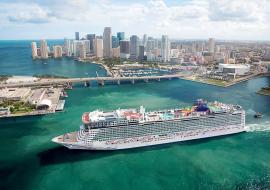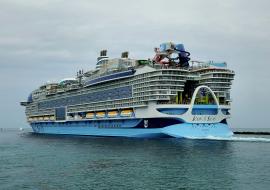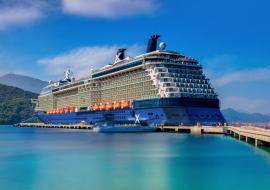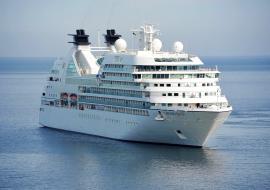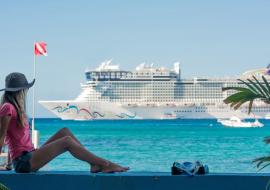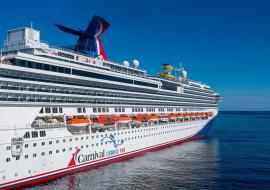FCCA, CTO Go to Bat for Caribbean´s Cruise Industry
Caribbean cruise lines are rebutting criticism that their industry makes little contribution to the sustainable economic development of the Caribbean region. Responding to a barrage of charges at the recent Florida Caribbean Cruise Association (FCCA) conference in Basseterre –which ranged from not sourcing Caribbean agricultural products to employing only a token number of Caribbean nationals- FCCA President Michelle Paige says the accusations are groundless.
She said some Caribbean destinations, like Aruba, Barbados and St. Kitts, have not voiced any major concerns about employment, and added that governments ought to share their wish lists with the cruise industry.
She also announced, in a change of fortune for the Caribbean agriculture and poultry sectors, that the cruise lines will start buying chicken breasts from Barbados and that they have made a commitment to buy Caribbean bananas.
Mrs. Paige also emphasized that the cruise industry is the most heavily regulated industry in environmental compliance.
Vincent Vanderpool-Wallace, Secretary General of the Caribbean Tourism Organization, whose institution has in the past been at odds with the cruise sector, expressed delight with the renewed relationship between the FCCA, CTO, and Caribbean Hotel Association.
“I can attribute that to only one thing. This is the first time in history that we have had women at the heads of FCCA, CTO and CHA. It is clear to me that if we want to fight, we get men. If we want to cooperate, we should get women.”
Vanderpool-Wallace said that the Caribbean´s marketplace reputation is fashioned as much by cruise passengers as it is by stopover visitors. “We therefore have an obligation to ensure that the cruise visitor experience is the best that it can be,” he said.
Vanderpool-Wallace noted that the best measure of success is whether customers recommend the Caribbean, not whether they come back within a specified period of time.
“That being the case, it is our collective job to ensure that their experiences are so good that we keep them moving around our region with high recommendations. So there is a large degree of interdependence in ensuring the continued success of Caribbean tourism.”








